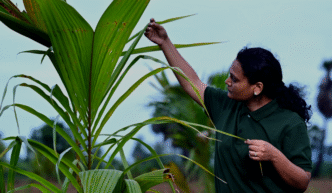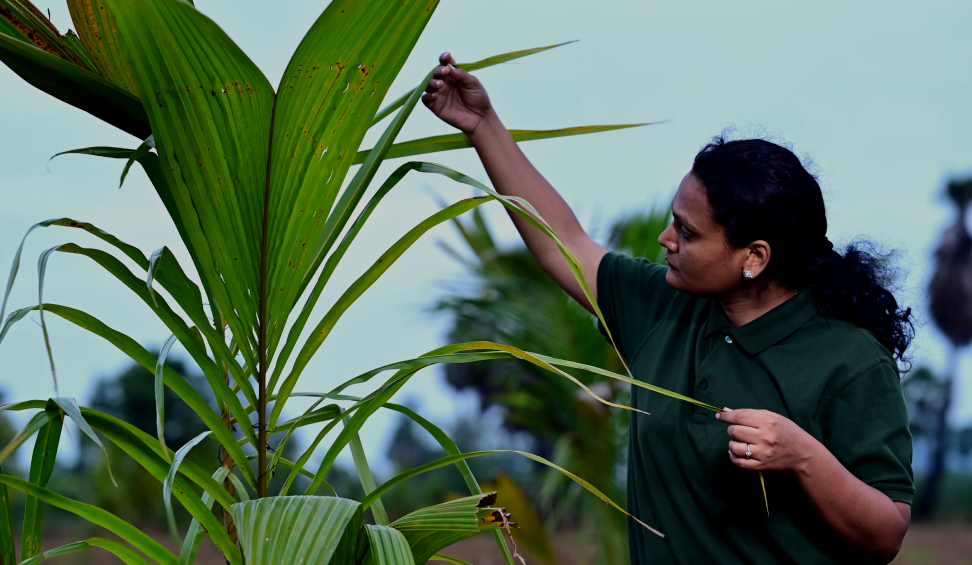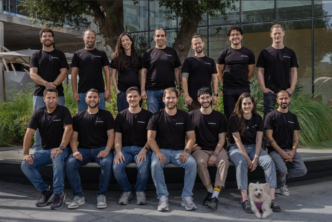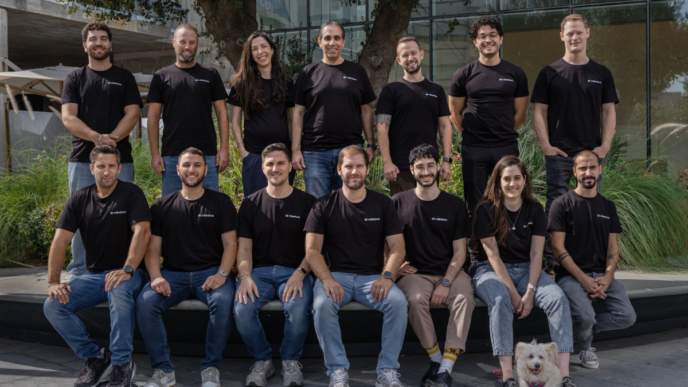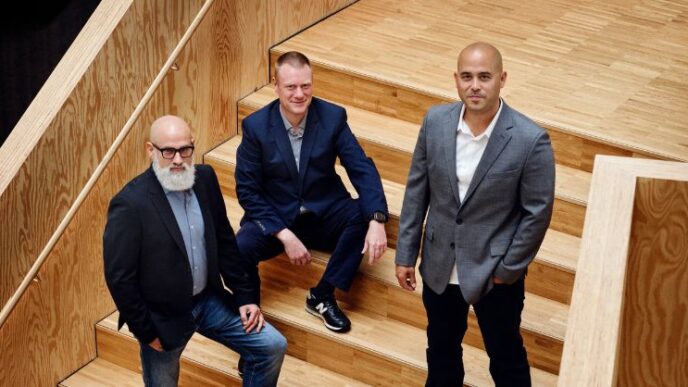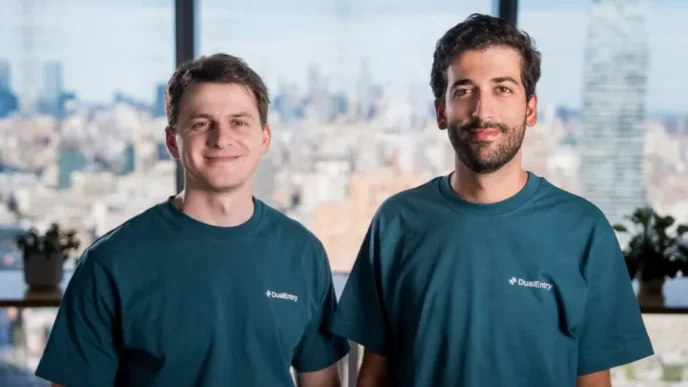Mirova Varaha regenerative farming efforts just received a major lift as the Kering-backed climate investment firm committed $30.5 million to the Indian climate tech startup.
The move marks a rare kind of carbon investment, one that channels cash directly into large-scale regenerative agriculture instead of taking equity. For Varaha, which works with rural communities across northern India, the funding arrives at a moment when smallholder farmers urgently need practical and sustainable solutions to restore soil health and secure their livelihoods.
The deal stands out because of its structure. Rather than purchasing ownership in the company, Mirova will receive a share of the carbon credits created over time as a result of the climate-positive farming practices Varaha deploys.
It shows a shift in how corporations and climate-focused funds are choosing to participate in emissions-reduction projects, by backing long-term programs that create measurable environmental and social impact.
Mirova, an affiliate of Natixis Investment Managers, is supported by major global groups such as Kering, Orange, Capgemini, L’Occitane, MANE, and Unibail-Rodamco-Westfield. All of them are seeking credible carbon mitigation pathways as they work to reduce supply chain emissions.
Regenerative farming has been gaining momentum around the world, but in India it has become essential. Soil degradation, water shortages, and unpredictable weather patterns have pushed millions of small farmers into an increasingly vulnerable position. The promise of regenerative practices, restoring soil, improving biodiversity, saving water, reducing chemicals, and creating fresh revenue sources,
offers a real alternative. Varaha was founded in 2022 to build systems rooted in these ideas, focusing on regenerative agriculture, agroforestry, and biochar projects across the country. The company works through 48 local partners, combining on-ground operations with real-time monitoring software to track climate and community outcomes.
The $30.5 million investment will expand Varaha’s flagship initiative, the Kheti project, which operates across Haryana and Punjab. The program encourages farmers to adopt low-emission farming techniques that can generate verified carbon credits and unlock new income streams.
Today, Kheti covers over 200,000 hectares and is projected to reach roughly 337,000 farmers and 675,000 hectares as it scales. The model blends traditional knowledge with advanced agritech, showing communities that climate resilience can also be economically rewarding.
One of the biggest challenges in northern India is the widespread practice of burning crop residue, a key driver of air pollution every winter.
Varaha is working to change that by promoting direct seeding of rice and using machines to mix leftover stubble back into the soil. It’s a simple shift, but it has a significant impact on soil carbon storage, water usage, and air quality.
Co-founder and CEO Madhur Jain often explains the approach in straightforward terms: instead of burning crop residue, farmers use machinery to chop and blend it into the earth, enriching it rather than harming the environment.
The startup also champions reduced tillage as another core pillar of its regenerative model. Farmers traditionally plough their fields several times, which releases stored carbon and disturbs soil structure.
By reducing tillage to one or two rounds, farms can hold more carbon, retain more moisture, and build healthier soil over time. These shifts may appear small when viewed individually, but across hundreds of thousands of hectares, the climate benefits compound rapidly.
A major part of Mirova’s funding will go toward solving a practical but critical bottleneck: agricultural machinery. Direct seeding and residue incorporation require equipment that many farmers simply do not have.
Varaha is working with manufacturers to procure thousands of direct seeders, happy seeders, super seeders, and other tools needed to help the transition. Demand far exceeds supply at the moment, and access to machines is often the biggest barrier preventing farmers from adopting regenerative methods at scale.
To maintain transparency and global credibility, Varaha’s carbon credits are verified using Verra’s VM0042 methodology, which is widely considered the most advanced scientific standard for soil carbon projects.
The initiative is also pursuing CCB (Climate, Community & Biodiversity) certification, an endorsement reserved for projects that demonstrate strong co-benefits for people and the planet.
While Verra has faced criticism related to forest carbon projects, Varaha says soil carbon credits under the organization have not been challenged and remain scientifically robust. The startup also works with other registries such as Puro and Isometric to maintain flexibility and diversify its certification partners.
The benefits of Varaha’s model extend well beyond carbon reduction. Farmers in the program often see improved soil health, higher yields, lower costs, reduced chemical inputs, and more efficient water use.
Cleaner air and less stubble burning also improve local health outcomes. With its new capital, Varaha plans to introduce dedicated initiatives for women farmers — a vital step in strengthening gender inclusion and empowering communities long overlooked in India’s agriculture sector.
Varaha’s global reputation received a major boost earlier this year through a landmark agreement with Google. The tech giant will purchase 100,000 tons of carbon dioxide removal credits from Varaha’s biochar projects by 2030, making it the world’s largest deal of its kind.
That credibility has helped the startup attract backing from notable investors including RTP Global, Omnivore, Orios Venture Partners, Japan’s Norinchukin Bank, and IMC Pan Asia Alliance Group’s Octave Wellbeing Economy Fund. Before Mirova’s investment, Varaha had already raised $12.7 million in venture funding, anchored by an $8.7 million Series A last year.
As climate threats intensify, India’s agricultural transition has become one of the most urgent global challenges. Mirova’s $30.5 million infusion signals growing confidence in Varaha’s approach, a blend of science, technology, and grassroots engagement. It also reflects a broader shift in climate finance, where investors are beginning to prioritize long-term impact over quick returns.
For farmers across northern India, the impact will be felt in the soil beneath their feet: healthier land, better yields, stronger climate resilience, and a new source of stable income tied directly to sustainable farming practices.
And for the global climate community, it offers a real-world blueprint for how regenerative agriculture can scale, one hectare, one village, and one farming season at a time.
